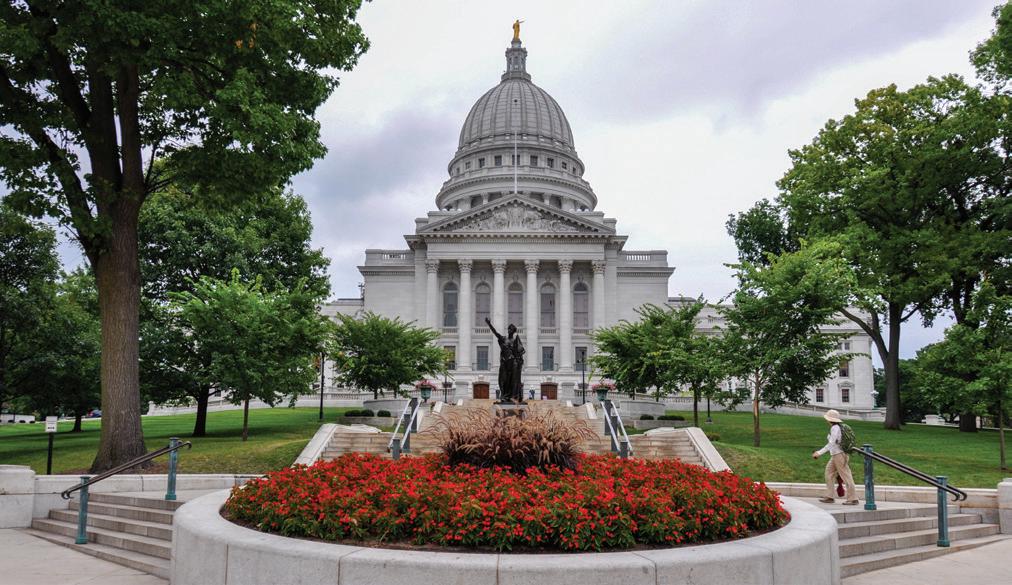
3 minute read
Legislative Notes
MOVING FORWARD
BY SCOTT STENGER, STENGER GOVERNMENT RELATIONS
It has been a year since the COVID-19 pandemic crippled the world. The hospitality industry has been among the hardest hit. Sadly, thousands of small, independently owned restaurants, taverns and supper clubs have gone out of business since March 2020. As of December 2020, over 17% of restaurants in the United States have permanently closed and the unemployment rate in the hospitality industry has reached 40%.
PPP TAX FIX
The hospitality industry is a critical economic component to Wisconsin’s economy. Small, independently owned restaurants, taverns and supper clubs employ thousands, and contribute to the local and state tax base. The Wisconsin hospitality industry alone provides over 120,000 jobs and has an economic impact of over $5 billion. In addition, these small businesses are major charitable contributors in their local communities. TLW members, for example, donate more than $13 million annually to local, state and national charities.
As difficult as the last year has been for small businesses, it looked like it was going to get even worse. A technical glitch in state law would have prohibited any Wisconsin businesses that accepted Paycheck Protection Program (PPP) loans from taking business deductions on expenses paid for by the loans. This technicality could’ve resulted in a tremendous increase in tax liability for small businesses struggling to survive.
As the legislative session began, Sens. Roger Roth (R-Appleton) and Rob Stafsholt (R-New Richmond) worked quickly to change state law to rescue small businesses from the unintended tax. Gov. Tony Evers signed Assembly Bill 2, which eliminated the PPP loan tax, saving Wisconsin small businesses nearly $480 million. The TLW worked closely with legislators and a coalition of Wisconsin businesses to fix this unintended tax on small businesses receiving PPP loans.
Congress created forgivable PPP loans for small businesses to help them cope with the business interruption the COVID-19 pandemic caused. Increased tax liability was not the intent and it was later corrected when Congress approved the second round of PPP loans in December. However, without the state change contained in Assembly Bill 2, any business that accepted a PPP loan would have tax liability for expenses paid using PPP funds.
DRINKS TO GO
State Rep. David Steffen (R-Green Bay) and Sen. Mary Felzkowski (R-Irma) introduced legislation to permit restaurants, taverns and supper clubs to provide drinks to go — a small change that would help many small businesses survive. A version of drinks to go is currently permitted in 33 states, plus the District of Columbia.
According to a National Restaurant Association survey conducted in November 2020, 76% of the 500 Wisconsin residents age 21 and older who were surveyed would favor a proposal to allow for cocktails to go, permitting customers to purchase cocktails or mixed drinks (made with distilled spirits) with their takeout orders from restaurants. This is in addition to beer and wine, which is currently allowed for takeout only. Among this same group, 29% said the option of including alcoholic beverages with their order would make them more likely to choose one restaurant over another similar restaurant.
The proposal simply amends current law to allow a “Class B” licensed retailer to sell a cocktail or wine by the glass for consumption off premise if the restaurant or bar seals the container with a tamper-evident seal before the cocktail is removed from the premises. This change could greatly benefit small, independent restaurant, tavern and supper club owners, and provide them with one more tool to stay afloat through the pandemic. TLW










